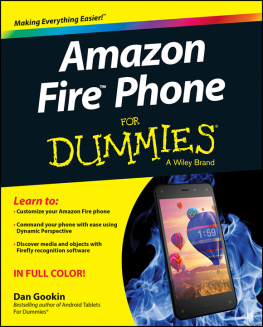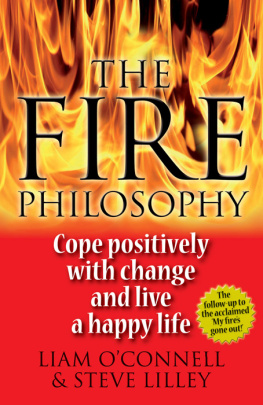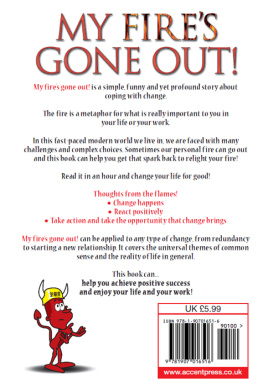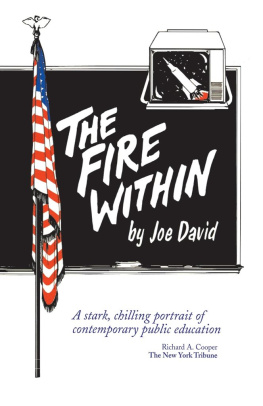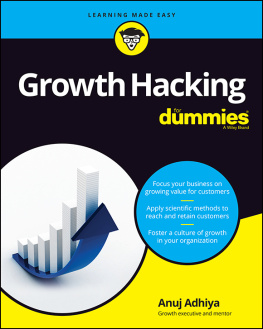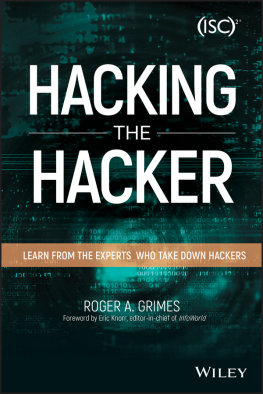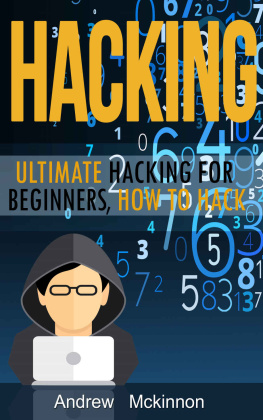In the modern day of technology, internet, iPods, iPads, hot-desking, Facebook, Linked-in , mobile working, you are going to need a different approach to run your life. Everyone knows it. They just aren't saying it. A lot of people continually struggle. Trying to live a half-life between the old way of doing things, and the new.
In this book, I am going to convert you. I am going to show you why you need to feel the fear and do it. I will attempt to show you that hanging onto old habits, not only hinders your ability to perform at the top of your game but contribute to making modern living more troublesome. Many areas in our lives need upgrading. Some people are still living in the 'MS-DOS' generation with floppy disks and punch tape readers. There are so many areas that we can apply technology to ease our burdens. I am probably one of the laziest people on the planet, but if I can see that with a small amount of effort, I can do so much more, and quicker. It's a no-brainer.
Let's look at our options for change. Let's make things an awful lot easier for ourselves.
Let's Hack and Upgrade our Lives.
Chapter 2
THE MOBILE PHONE
If your phone is not a multimedia phone, comparable to an iPhone. Take a shoebox, dig a hole in the garden. Gather your family and friends together. And bury it In a formal service. (Eulogy optional). The world will love you for it. Men, you may find that you begin attracting admiring women. Women may find more lecherous weirdos. Hey! Life's not perfect. Stranger things happen at sea.
***
Let's start with the most common and arguably useful tool since sliced bread. At least, that's what most in the know realize about our almost space-age-like gadget. Phones have come a long way since the dark ages of tin cans and a piece of string. Or smoke signals from yonder mountain top.
I love my phone. It's an Apple iPhone. A phone once used, easily smitten. The late Steve Jobs once said ' It's a thing of beauty.' To be honest, I'm not the guy to argue with him.
I cannot now think how I ever managed without it. It's like the morning coffee or tea. You feel incomplete without it. Whenever I leave my house, I find myself feeling for my wallet, keys, phone. But out of those, the one I would miss most if I forgot it, will be my phone. Why? Because with my phone, if I had forgotten the other two items anywhere, I can solve them with my phone.
Ok, I know what you are thinking, I am just an Apple fanboy that has been sent to proselytize the masses. That's not true my friends. I don't care if you use a Samsung, A Nokia, A Hitachi, A Sony. Hell, I don't even care if you use a Binatone. Hmm, maybe I took that one a bit too far. But look listen up and hear why I praise this device.
The mobile phone has evolved and rather than staying in its classical form as a device to make calls. Some smart eggheads decided because we now all seem to have one of these devices, and if it could do more for us, that would not be such a bad thing. So what did they do? They stuck a decent screen on it and made it more like a computer at a flip of a coin; we are now performing activities on a tiny computer that outperforms anything Oscar Goldman could buy with his six million dollars in 1978. It not only lets us communicate but let us carry out tasks on the go. Tasks that we previously needed to engage more people to complete. Most modern phones are the equivalent of home computers of a few years ago. Ok, let us look at what task we all had to carry out at one time or another during a typical day.
Communicate with someone not in your geographical vicinity
Write a letter to someone
Talk to the bank
Go Shopping
Book an appointment with the doctors
Go to the post office and pay a bill
Call on different of shops to check prices, before a purchase
The list goes on.
Many moons ago when things were simpler, we were not rushed through life like we are today. Just speak to parents. Yes, life may have been hard, but life was also much more straightforward. Today the need to multi-task and perform against greater competition than before has never been greater.
If we needed to contact someone, short of going to see them physically, we would have to find a public call box, or have access to a location with a land-line. That was fine for many occasions. But It did not go unnoticed that when such a line was not available, you would need to run out in the cold down the street to find a call box, or ask to borrow one from a neighbour, which was usually inconvenient. Besides, some locations simply did not have a land-line near. The modern mobile phone solved this issue. The fact is more people are in communication today than ever were. We are in contact with family, and relatives a lot more, which is a good thing for most.
If we had a lot to say, or we required a way to communicate that information so that someone could remember it, we would send them a note or a letter. The modern phone solves this for us by the feature of text messaging or email. The text messaging feature was for sending quick notes. The sort of stuff you'd write on a post-it note. Typically, information that was straight to the point.
Initially, when the text messaging feature was introduced ; it was promoted as a throwaway feature. The telecommunications carriers did not envisage text messaging as actually taking off and focused all their efforts on the phone calls, which imposed the majority of charges to customers. Ironically because of this, people (mainly teens chastised about large phone bills) started using the text feature to communicate in colleges, university and at home, far more than the voice. Because texting was significantly cheaper. Through the utilization of this medium, a whole sub-language of communication developed. Short forms of words and idiosyncrasies particular to text messaging. You've probably seen these short forms and wondered how the hell they got started. Short forms like ' LOL translated to Laugh Out Loud. 'CUL' See you later. Pretty soon everyone started to use the feature to communicate.


